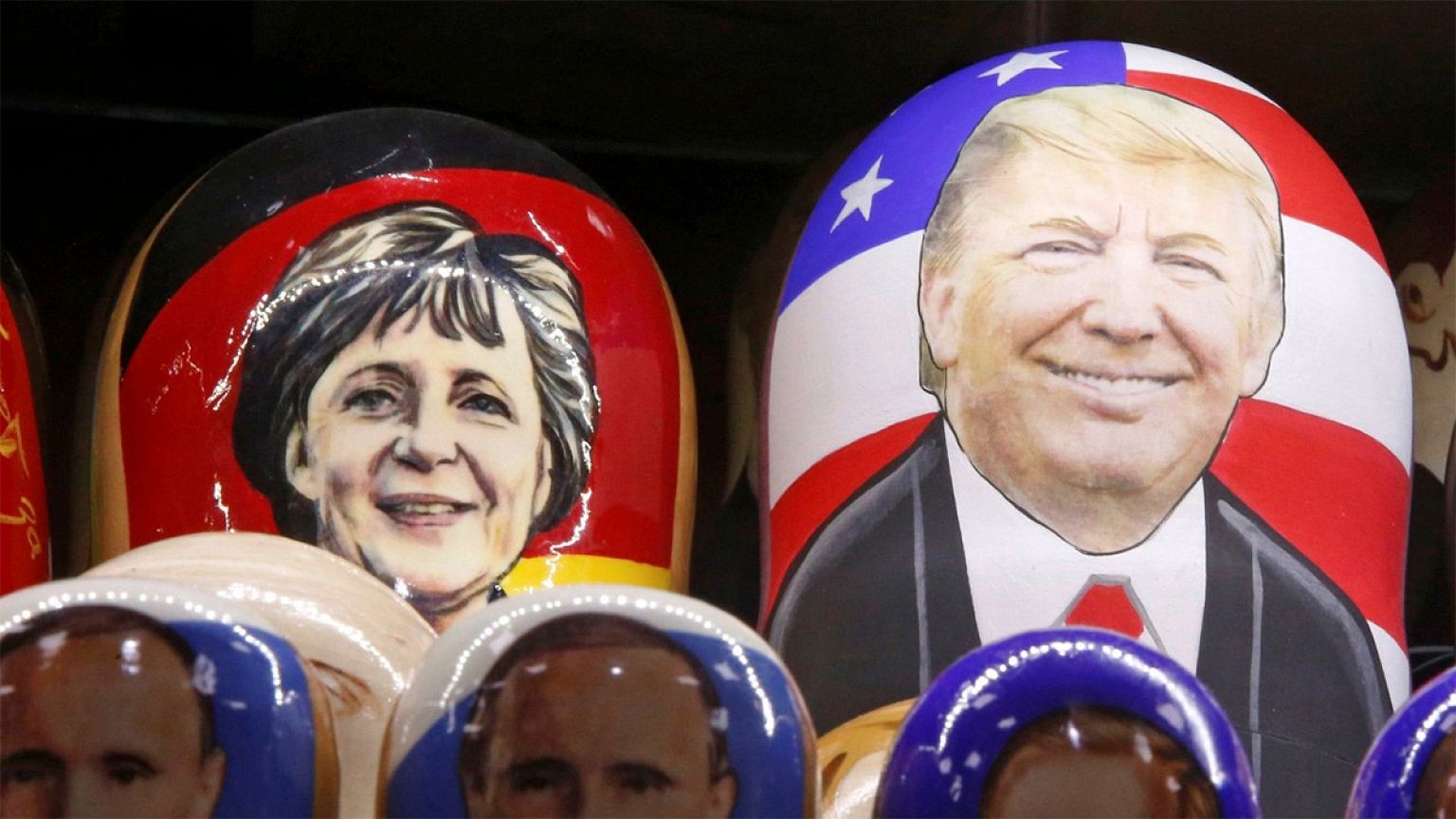During the presidential campaign, Donald Trump accused Angela Merkel of leading Germany into “a disaster” because of her migration policy.
 ADVERTISEMENT
ADVERTISEMENT
During the presidential campaign, Donald Trump accused Angela Merkel of leading Germany into “a disaster” because of her migration policy. Next Tuesday, he will have the chance to elaborate when he meets her at the White House.
For the German chancellor, it will likely be her most awkward meeting with a US president after getting along reasonably well with George W. Bush and Barack Obama.
Merkel’s visit comes at a time when she is on the defensive half a year before Germany’s general elections: domestically for the first time, she faces a serious challenger; one by one, her European partners have been weakened; and in Washington she has to deal with a new president who got mad at her when she became the Time “Person of the Year” in 2015 rather than him.
There has been little known contact between the German leader and Trump since he took office. Following Trump’s election, Merkel and Trump had a phone conversation in which she was said to have reminded the billionaire of democratic values.
To prepare for the unpredictable Trump, Merkel has reportedly been studying footage of Trump interview and campaign appearances. Asked whether Trump had done the same, White House officials said they were not sure.
What tone the meeting with Trump will have is anybody’s guess in Washington. Merkel has quite some experience with egomaniacs from Vladimir Putin to Nicolas Sarkozy and Silvio Berlusconi.
Their interaction could be on display at a joint press conference at the White House, yet no details of the visit have been made available so far.
From the German (or European) point of view, the two leaders will come together as the trans-Atlantic relationship faces its biggest test in decades.
In reaction to the new Trump era, Merkel said on Thursday that Europe must take on more responsibility and continue to stick to its open trade policy.
She told the German Parliament that Europe “must be able to have an independent crisis management in our region” — not in competition, but in addition to NATO.
The “trans-Atlantic partnership based upon our values and interests” is of overriding importance for Europeans — and that “this is the spirit” in which she would lead her talks with Trump in Washington.
Indirectly referring to Trump’s isolationist economic leanings, she said “even if in parts of the world we see protectionist and nationalist approaches on the rise, Europe may never isolate, seal itself off or withdraw.”
Trump has vowed to take a tougher line in forging deals and slapping a border tax of 35 percent on cars that German carmaker BMW plans to build at a new plant in Mexico and export to the United States.
But the Germans are willing to call it a bluff. “Do we really want to try to force German citizens to buy American cars?” says, Jürgen Hardt, the Berlin’s coordinator for transatlantic policies.
“Does the American president want to force Americans to stop buying German cars in the future? Do we want to artificially make German cars more expensive with taxes so that consumers buy more foreign products?”
Asked about the future of transatlantic trade, a senior administration official on Friday said the White House has “not formulated a final position” on whether it will pursue the Transatlantic Trade and Investment Partnership (T-TIP) deal with the European Union.
On defense and security policy, Trump has been “heartened” by what he has heard from Berlin about devoting more resources to the annual NATO military budget, according to the senior official.
Germany spends less than 1.2 per cent of its gross domestic product on defense, compared with a NATO target of 2 per cent. Trump wants this to change, and Berlin has pledged to meet the NATO target by the mid-2020s.
Trump intends to talk with Merkel about her government crafting a “concrete plan,” the senior official said.
When it comes to Russia, Germany together with France spearheaded the EU sanctions effort over Ukraine. The danger now is that a US policy shift will cut the ground from underneath Merkel, commented the Financial Times in an editorial.
“The chancellor should use her Washington visit to make the case for holding the line on sanctions until Russia stops meddling in Ukraine. With the US posture towards Russia in chaos, her voice could count for a lot.”













